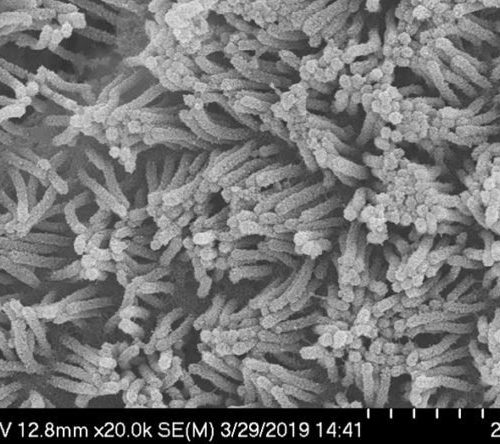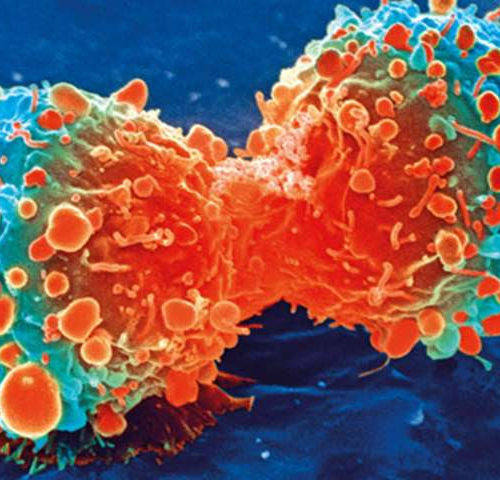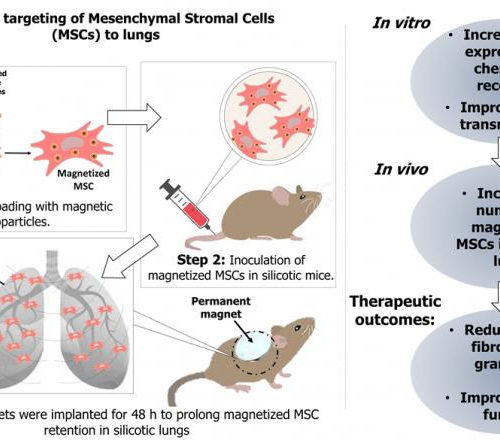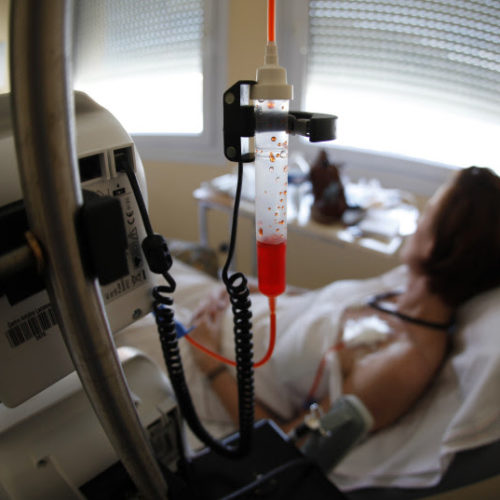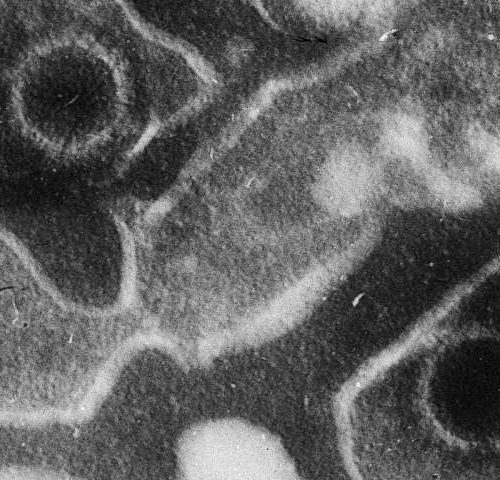Every year, about 250,000 people in the U.S. with severe obesity and related health conditions undergo bariatric surgeries. These procedures can help people lose excess weight and rapidly improve high blood sugar, high blood pressure and heart disease. Some of these changes result from restricting the amount of food the stomach can hold. Others arise...
Tag: <span>Potential therapeutic</span>
Researchers discover a metabolic enzyme that spurs the growth and spread of liver cancer
by Sanford Burnham Prebys Medical Discovery Institute An enzyme that blocks the metabolic processes that contribute to the rapid growth and spread of liver cancer has been discovered, according to a study by researchers at Sanford Burnham Prebys and Weill Cornell Medicine. The findings, published in Cancer Cell, could spur development of new therapies for...
Magnetic guidance improves stem cells’ ability to treat occupational lung disease
Durham, NC – Results of a study released today in STEM CELLS Translational Medicine(SCTM) may point the way to a cure for a serious lung disease called silicosis that affects millions of workers worldwide. Silicosis results from years of breathing in dust microparticles of silica by workers in professions such as construction and sand blasting....
Cancer treatments significantly affected by diet, researchers find
By DONNA RACHEL EDMUNDS Changes in diet can increase the toxicity of a chemotherapeutic drug by up to 100-fold. What we eat has a direct effect on the outcome of medical treatments such as chemotherapy thanks to the interplay between our diets and the microbes in our gut, new research from the University of Virginia...
Want to get rid of cellulite? There’s only one thing worth trying.
Contrary to what dozens of “cellulite solutions” companies want you to believe. By Sara Chodosh Updated: December 30, 2019 No one wants to hear that there’s no solution to the problem that vexes them. And while we might be loathe to admit it, we don’t want to find out that the solutions that do exist...
Human growth hormone treatment after ACL injury may prevent loss of muscle strength
ANN ARBOR, Mich. – After experiencing an ACL injury, a common sports injury involving ligaments in the knee, many athletes find they can’t return to play with the same vigor as before their injury. But, a new study, published in The American Journal of Sports Medicine, finds human growth hormone treatment after ACL reconstructive surgery...
DIY diabetics create artificial pancreas, push health-care industry, regulators to develop better treatments
U of A PhD candidate studies and participates in grassroots movement to hack diabetes equipment. People with Type 1 diabetes—including U of A graduate student Jonathan Garfinkel—are using free instructions from the internet to build an artificial pancreas. The patient-led movement is pushing pharmaceutical companies to improve the treatments they offer, according to U of...
A new way to control Epstein-Barr virus
by Chris Palmer, University of Utah Health Sciences This electron microscopic image of two Epstein Barr Virus virions (viral particles) shows round capsids—protein-encased genetic material—loosely surrounded by the membrane envelope. Credit: DOI: 10.1371/journal.pbio.0030430.g001 A team of researchers at University of Utah Health have shown the Epstein-Barr virus—which causes mononucleosis and is linked to development of...
Caveolin binding motif in Na/K-ATPase required for stem cell differentiation in animals
HUNTINGTON, W.Va. – New findings reveal the importance of the Na/K-ATPase protein in stem cell differentiation and organogenesis, in a study led by scientists at Marshall University that involves the scaffolding function of the Na/K-ATPase. The research, published today in Science Advances, indicates that a sequence in the Na/K-ATPase, also known as the sodium pump,...
Transcranial direct current stimulation is a safe treatment
by University of Eastern Finland Transcranial direct current stimulation, tDCS, is a promising treatment for conditions such as depression and addictive disorders. New evidence on the safety of transcranial direct current stimulation was recently offered by a new study showing that tDCS does not affect metabolism. Transcranial direct current stimulation is a non-invasive method for...

